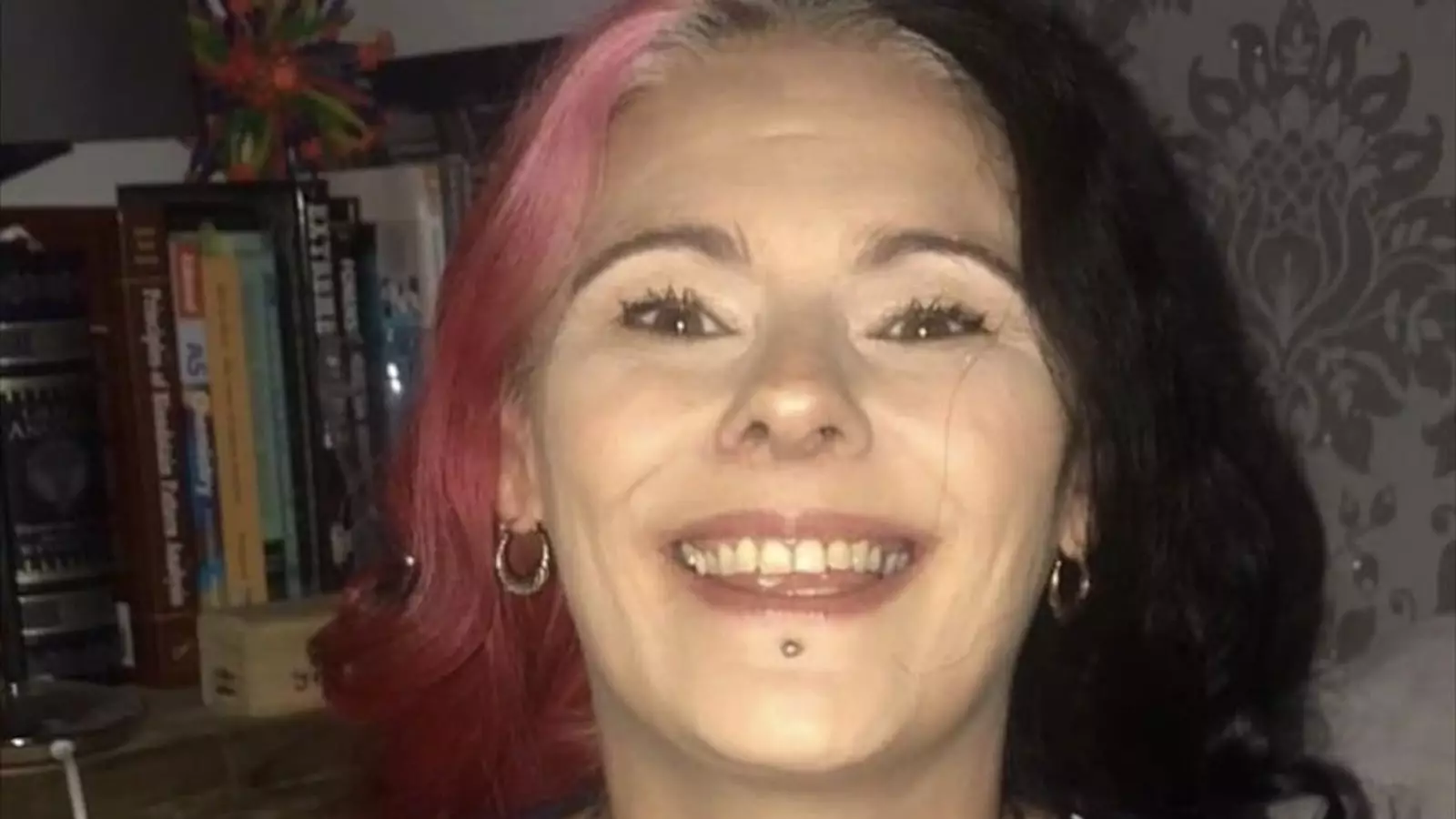Paula Parretti, remembered fondly as the spirited “fun aunt,” was a beacon of joy in her family’s life. Her commitment to being fiercely involved with her niece’s children reflected a character that was not only vibrant but also nurturing. That’s why, when Paula decided to dye half her hair bright pink, it was a symbol of her playful spirit. However, this lively persona was starkly contrasted by the tragic account of her mental health battle, culminating in her untimely passing in January 2022. Sam Cook, her sister, recalls Paula as an ever-present support in her children’s lives, but her memory has now become colored by heartbreak.
The circumstances surrounding Paula’s death are not merely a family tragedy; they weave into a larger narrative of systemic failures within mental health services. Sam’s reflections reveal a painful reality that far too many families face when navigating mental health care in their times of need. Instead of the help she deserved, Paula found a painful ending to a life filled with potential.
The Final Days
The ordeal began when Paula was discharged from a hospital, visibly distressed. Instead of compassionate post-care support, Sam experienced something far worse: neglect. She vividly recounts the moment she was told to take her sister home. “They dropped her bags at my feet and said, ‘You’ve got to take her home, we need the bed,'” Sam recalls with a mixture of disbelief and sorrow. Such an encounter signals a systemic issue within mental health care—underscoring the urgent need for compassion and listening in treating patients who are vulnerable.
Paula’s cries of despair went unheard: “Nobody listens. I’m never going to get any help.” These haunting words encapsulate the echo of numerous similar stories. The statement signifies the monumental disconnect between patients seeking help and the very system tasked with providing it. Sam’s recollection offers a window into the profound loneliness felt by those struggling with mental health issues and the families advocating for them.
Sam Cook stands poised to be a voice for those who have suffered silently, as she prepares to testify at the Lampard Inquiry. This public inquiry delves into the deaths of over 2,000 mental health patients in Essex, spanning from 2000 to 2023. As she steps into this role, she brings with her the heavy burden of her sister’s story, an experience that amplifies the cries of countless others who feel forgotten by the healthcare system.
During an earlier stay at the Linden Centre, Paula endured injuries at the hands of staff, which highlights a crucial aspect of mental health treatment: the necessity for humane care. The trust’s admission of fault following this incident and subsequent compensation pale in comparison to the emotional and physical trauma faced by Paula and others like her.
In the wake of such devastating loss, Sam has vowed to channel her grief into activism. “I promised myself that I’d get her voice heard,” she asserts, revealing a determination that is both admirable and essential in the fight for reform in mental health services. Her efforts symbolize a broader call to action—a reminder that families of mental health patients must unite to demand accountability and change.
Her experience resonates beyond her personal tragedy, as she connects with others who have faced similar challenges. “It’s not just Paula or my cousin or my friend; it’s a nationwide cry for change,” she shares. This collective frustration exposes a prevalent problem in which many individuals experiencing mental health issues find themselves battling for recognition, care, and support.
At the heart of Sam’s advocacy is a resounding truth: those suffering from mental health issues are human beings deserving of respect and dignity. “Just because they have mental health problems, it doesn’t mean that they’re anything less than a person,” she emphasizes. This statement should echo in the hearts of every healthcare provider, caregiver, and policymaker. Mental health patients are someone’s loved ones; they are siblings, parents, and friends who need care that reflects their human complexity.
The stories shared within families are boundless, and each one carries the potential to drive change. The systemic issues laid bare by Sam’s narrative compel us to listen, to understand, and ultimately, to act. As we explore these difficult truths, it is crucial for society to confront its assumptions about mental health, ensuring that every voice—especially those of caregivers who have suffered loss—is heard and validated.
Anyone experiencing emotional distress or suicidal thoughts is encouraged to seek help, reminding us all of the importance of empathy and mental health support systems. In an era where awareness is rising, it is our collective responsibility to ensure these difficulties do not persist unnoticed.

Leave a Reply